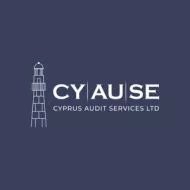- within Tax topic(s)
- in United States
- with readers working within the Media & Information industries
- within Tax, Immigration and Law Department Performance topic(s)
Rental income – Tax treatment
This article will explain the tax treatment between a company or/and an individual who own a property which is rented to tenants assuming it is their main source of income (i.e turnover more than Euro 15,600 per annum).
Notes for the reader:
VAT
1) Tax treatment: as far as VAT and SDC is concerned differs depending if such income is classified as a short-term or long-term accommodation rental.
2) VAT obligation commences if the rental income exceeds the normal vat registration rate of 19%.
If this threshold is not exceeded, the owner of the immovable property is not obliged to be VAT registered, though voluntary registration is optional.
3) VAT is a very complex area and this article should be used as a quick brief of its application. VAT treatment could vary significantly depending on each case and scenario; free consultation can be provided by email Mr Tramountanellis at kt@cyprusaccountants.com.cy
4) If you have a property which is not obliged to become VAT registered, ignore all reference to VAT and read the remaining taxes that may apply.
Other Taxes
Other taxes such as Corporation Tax, NHS Contribution and PAYE depend on whether or not the owner of the property is a Company or an individual (section C below).
SDC, PAYE and NHS applies to individuals whilst the Corporation Tax and SDC to Companies.
Individuals who are Cyprus Tax Residents but non domiciled are exempted form SDC but not NHS.
Terms
- VAT - Value Added Tax (for companies and individuals)
- SDC - Special Defence Tax (for companies and individuals)
- PAYE - Pay as You Earn Tax (for individuals)
- CT - Corporation Tax (for Companies)
A VAT Treatment
Assumptions
- Rental income exceeds VAT Registration Rate of Euro 15,600 in 12 consecutive months
Treatment of VAT depends on whether or not the property is rented for long stay or short stay as explained below.
a)The short-term rental of a residential property within the context of a holiday accommodation is subject to VAT at the reduced rate of 9%.
b) Long term rentals are exempted from VAT.
What Qualifies as short-term holiday accommodation rental.
Though there is no clear definition of short term and long term rentals stipulated in the VAT legislation,such short term rental would be any short term rental (i.e. up to a month long rental) which is usually agreed on a nightly fee basis.
Such rental would also be self sustained; the rental will be accompanied by other services akin to those of holiday accommodation, i.e. it would be expected that the accommodation would be furnished, utility consumption is included, linen and cleaning services are provided along with services such as Wi-Fi.
Such transactions may either be affected via online platforms such as booking.com or Airbnb or through property managers or directly by the owner.
It may not always be clear whether the transaction is one of holiday accommodation rental and such transactions are easier to prove in tourist areas i.e. in Limassol compared to Nicosia city centre.
1. Short-term accommodation
Example: Tax treatment for Airbnb
Reduced VAT 9% but no SDC for Companies and Individuals with registered properties under airbnb status.
According to the law of the Establishment and Operation of Hotels and Tourist Accommodations, the last few years an increasing number of individuals and companies who own properties have begun renting them to other tenants (with a short stay) which create a more competitive market against the hotels.
The tax treatment for the properties that are classified as an Airbnb without involving the owner or the management company staying in the premises, are not subject to the payment of Special defence contribution as it is exempted in this occasion according to law.
For the properties or property units that are under the category of Airbnb, in order to be considered as self-sustained and enjoy the above tax treatment, all the below must apply for the property / units:
- Must be insured.
- Should be registered in VAT.
- Should be registered in Self-service accommodation and have an authorised number.
- Should be under the list of Cyprus Tourism Organization.
If the above apply short rental income will subject to reduced VAT at 9% but it will not be subject to special defence tax (3%).
In addition this income will be subject to corporation tax for companies and PAYE and NHS for individuals as explained below (section C).
What Qualifies as long-term accommodation rental (No VAT)
The long-term rental of a residential property could be identified as any form of rental through which the tenant will essentially be using the property as their own primary residence (for a long stay i.e. six months, a year etc).
Usually a good indication of such rentals is whether or not the electricity costs are mentioned in the contract by whom they are born. Long term rentals typically switch the electricity bills to their long term tenants.
The lessor has the right, based on terms and conditions which will be designated by the Commissioner of Taxation in his relevant Notification, to opt for the non - imposition of VAT to the lessee of the immovable property. The option is irrevocable.
No VAT!
Rest of taxes apply as per section C below.
Mored detailed Analysis on VAT treatment (Short term vs long term rent)
Short-term rental accommodation
The short-term rental of holiday accommodation is subject to VAT at the reduced rate of 9% under the assumption that it meets the criteria of supply of accommodation similar to that of hotel establishments. The holiday accommodation services must be supplied directly by the owner to the end user (i.e. the owner invoiced and received the funds directly from the customers) in order the services to be subject to the reduced rate of 9%.
Cyprus VAT at the standard rate applies on the rental income to earned by the owner for making available the properties to various property manager for them to subsequently rent it out for holiday accommodation.
Long-term rental accommodation (vs long term leases)
The long-term rental of a residential property is exempt from VAT. This would be any form of rental through which the tenant will essentially be using the property as their own primary residence. However, as from 13 November 2017, the long-term rental of immovable property, except buildings which are used as residential dwellings, to taxable persons for taxable business activities is subject to VAT at the standard rate of 19%.
The Cypriot VAT department will accept as a taxable transaction the letting of immovable property when the lessee's taxable supplies constitute at least 90% of his total supplies.
A lessor imposing VAT on letting income will be entitled to claim the input VAT incurred in relation to the immovable property. Input VAT incurred on the acquisition or construction of the property and other capital expenditure can be recovered in accordance with the capital goods scheme, which provides for VAT to be adjustable over a 10-year period.
The imposition of VAT applies to lease agreements which are concluded on or after the effective date of the Law.

B. Tax Treatment for Rental Income
All rental income is taxed either via PAYE or CT and could be subject to NHS and SDC depending on the status and tax residency of the lessor / owner of the immovable tax.
1. SDC (Special Defence Tax)
SDC applies to all Cyprus Tax Resident Individuals and Cyprus Companies subject to the below:
Similarly to VAT, SDC does not apply if the rental income is short term and registered under the local Airnbnb status (see section A above).
If however the above does not apply then the rental income is subject to a 30% discount and a special defence tax at 3%.
In addition, according to the law of the Establishment and Operation of Hotels and Tourist Accommodations, the tax treatment for the properties that are classified as long-term which the tents will essentially be using the property as their own primary residence without involving the owner or the management company staying in the premises, are subject to the payment of Special defence contribution (3% SDC).
2. NHS (National Healthcare System)
The NHS applies only to individuals who are tax residents in Cyprus (domiciled or not) subject to the NHS threshold of Euro 4,770 at the time of writing this article.
Consequently, NHS does not apply to rental income received by Companies whilst it applies to income received by individuals whether short stay or long stay.
C. Tax treatment: Company vs Individuals – Owner of a property
Based on the Cyprus laws and regulations, property owners are divided into two categories:
- Companies
- Individuals (employees and self-employed)
Each party might be using their properties as a short-term rent (such as Airbnb) or as a long-term rent (such as a rent to other companies where they are using it as their premises). Different tax treatment applies depending on whether the lessor / immovable property owner is a company or an individual.
The company owners will be eligible to pay:
- Corporation tax (If the year is profitable) – 12.5%
- Special Defence Contribution on rental income (not company profits) - 3%
- if the property is rented as a long-term or short rent which does not apply to the Airbnb status as per section A above with a 30% discount (effective SDC rate 2.25% on gross rental income)
The Individual owners will be eligible to pay:
- Special Defence Contribution – 3% on rental income less 30% discount (effective tax 2.25% on gross rental income)
- if the property is rented as a long-term or short rent which does not apply to the Airbnb status as per section A above.
- National Health Service (NHS) – 2.65% on rental income subject to the NHS threshold of Euro 4,770 at the time of writing this article.
- If there is a profit for self employed persons or salary for salaried persons the gross rental income will be added and will be a subject to PAYE at the personal tax brackets 20%, 25%,30% and 35% for taxable income exceeding Euro 60,000.
About Us
CYAUSE Audit Services has extensive experience in the insurance industry has helped tens of insurance brokers and agents register and get licensed by the local Cyprus regulator granting them passporting access to the rest of the European Union.
CYAUSE Audit Services is an Audit & Assurance firm with offices in Cyprus and the UAE. During 2015 we have been awarded by I.C.P.A.C and the A.C.C.A (local and international association of Chartered Certified Accountants) for the Quality of our Audit Services and our Office's Procedures.
Being a Truly International Audit & Assurance firm, we have associates from all over the world and we are constantly looking for new associates to expand our network further. At present, CYAUSE Audit Services operates internationally through its membership with BKR International amongst the largest American associations in the world, Accace Circle, a co-created business community of like-minded BPO providers and advisors who deliver outstanding services with elevated customer experience. Our network covers almost 40 jurisdictions with over 2,000 professionals, it supports more than 10,000 customers, mostly mid-size and international Fortune 500 companies from various sectors, and processes at least 170,000 payslips globally.
CYAUSE Audit Services Ltd is also a member of BKR International one of the biggest US Accounting Associations of the word and the 3E Accounting Network, an international accounting network which originates from Hong Kong and has more than 80 members from all over the world.
Learn More about Cyprus Corporate Environment
Information about CYAUSE Audit Services and the Cyprus Corporate & Tax System can be obtained from our Website or our YouTube channel which provides valuable information about the Corporate & Tax Environment of Cyprus.
The content of this article is intended to provide a general guide to the subject matter. Specialist advice should be sought about your specific circumstances.


